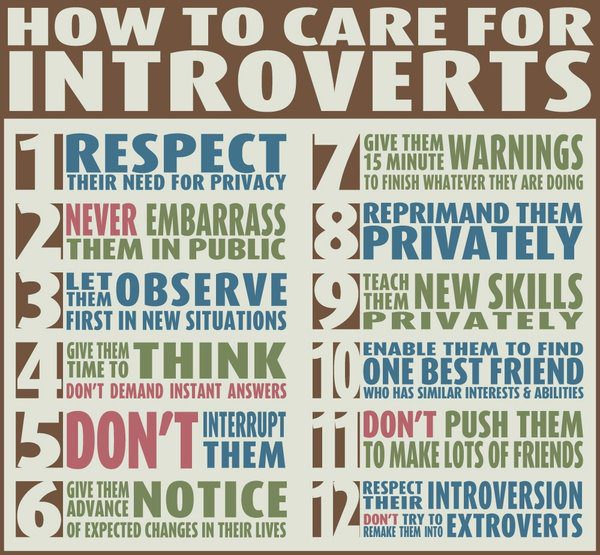I know what you’re thinking.
If I don’t raise my hands in your church, there’s probably something seriously wrong with the state of my soul. Clearly the Spirit ain’t moving if my hands aren’t lifting, right? [See my post Why I Left Your Seeker-friendly Church.]
OK. So I don’t know what you’re thinking exactly, but after having experienced countless Evangelical worship services and having been harangued by worship leaders to clap more, turn and greet total strangers as if we were long-lost friends, and raise my hands higher (Higher!), I might be a little sensitive to this whole raising hands thing.
Why don’t I raise my hands in your church?
I just don’t want to.
Saying NO to the Worship Bullies
Let me be clear. If you want to raise your hands, that’s fine by me. Try not to swing your elbows too much if you’re standing next to me, if you don’t mind. But go for it. Raise your hands. Dance. I know there is plenty of Biblical precedent for all of it – if it comes from a heart led by the Spirit to authentic worship.
But I suspect many Christians are raising their hands in church out of a sense of obligation rather than being inspired by a heart full of worship.
The worst is when I see someone who has volunteered to serve by singing in the worship band/team/thing whose body language says they’d rather be out of the spotlight. They often slip up a rather timid, almost obligatory hand as they sing. Or lip-sync, you can’t really tell (which raises the question why they are up there — but I digress). The person clearly isn’t comfortable raising his or her hand, yet apparently feels compelled to conform because “that’s what spiritual people do.” It makes for a painfully awkward time during which I just want to run up on the stage, give a hug, and whisper, “Just say NO to the worship bullies!”
Sometimes I think we’d all be better off without anyone standing in the front modeling proper singing behaviors. Especially in those churches where the entire congregation could stop singing and you’d never know it.
But then if we don’t know any of the words to the latest songs, I suppose we need someone to cover for us while we stumble along double-time, trying to follow the sappy lyrics flashed on the screen. [See my post Why I’ve Stopped Singing in Your Church.] I hear from people all the time who’ve tried to talk to their worship leaders about these issues and get nothing but disdain and defensive attacks for their efforts.
Introverts and Extroverts in Church
I know. You think I’m weird. Or sinful. Or whatever we call “backsliding” Christians these days. The funny thing is that fifty to seventy years ago, most of the Evangelical church would have thought the same thing about you – for raising your hands in church!
I’m not saying they would have been right. Back then, things were admittedly a bit stuffy in most churches – or so I’ve heard. Suits and ties. Pews. Hymnals. (For those of you under thirty, hymnals were these book-like things that had the words to the songs inside with pretty things called notes to decorate them. I know. Weird, right? You had to actually hold them in your hands when you sang.) Knee-length dresses. Well, now that I think about it, we could use some of those again so I could leave this blindfold at home. But that’s another story for another time.
And change is part of life, even the life of the Church.
Unfortunately, Churches back then seemed to cater to only half the population of the body of Christ – the introverts. Like me. For those unschooled in the vernacular of the –verts, an introvert is basically someone who tends to need to withdraw from other people to recharge and be at their individual best. An extrovert is the opposite. He or she actually draws strength from interacting and engaging with other people. Even as I write those words, I can feel myself cringing within at the thought of endlessly engaging people without time for reflection.
You’ll find a lot of definitions for introverts and extroverts, but I can think of no better treatment of late than Susan Cain’s book Quiet: The Power of Introverts in a World That Can’t Stop Talking:
Introversion – along with it’s cousins sensitivity, seriousness, and shyness – is now a second-class personality trait, somewhere between a disappointment and a pathology. Introverts living under the Extrovert Ideal are like women in a man’s world, discounted because of a trait that goes to the core of who they are. Extroversion is an enormously appealing personality style, but we’ve turned it into an oppressive standard to which most of us feel we must conform. (4)
If We Are the Body…
Don’t get me wrong, I love spending time with people (especially if they wear camo). Teaching, discipling, hanging out – I simply need a good amount of downtime to recharge and reflect afterwards. And waving my hands around while I mediate on the greatness of God? It’s just not for me.
Introverts are sort of like electric cars in that way. We can only go so far out on the road before we need to plug in to silence to recharge. Meanwhile, an extrovert recharges by hitting the road, meeting new people, and, perhaps, shaking and raising hands. But the body of Christ includes both.
The way I look at it, both introverts and extroverts should have portions of the worship service that push them out of their comfort zones. An introvert’s concern for the well-being of his more extroverted brothers and sisters should lead to patient tolerance of hand-waving and spontaneous meet-and-greets. But an extrovert’s love for the introvert should produce a place for seasons of quiet and reflection in worship as well as an end to guilty pressure to raise hands, clap rhythmically, or applaud a particularly stunning guitar solo.
How many introverted people have dropped out of the Evangelical church because they just don’t want to deal with all the awkwardness anymore? Leave a comment if you’re one of them. Half of the other readers don’t believe you exist.
Whatever Happened to Quiet in Church?
My own theory is that most men who went into seminary back in the day when churches were quieter were likely introverts who enjoyed reflection, study, and the meditative arts. Thus, when they became pastors, the churches they led tended to resemble their own personal tendencies.
But then came the sixties. As denominational structures deteriorated, the evangelical scene became more like the wild west of Christendom. The pastor and church that could draw the biggest crowd got the affirmation for having the most influence. So seminaries and ministry leadership began to attract more dynamic, charismatic figures who could draw and hold an audience spellbound for an hour – and an extra ten minutes on non-football Sundays when a missionary was in the house.
And as is most often the case with such cultural shifts, the pendulum swung to the opposite extreme. Soon everyone was waving hands, running through the aisles, and chucking the hymnals away in a rush to “share a worship experience.” After all, we can’t have people looking down to reflect on the words. They need to be looking out and up like any good extrovert should. Clearly the songs would have to be made much simpler.
The organ player moved from the back or the side to the center stage and was replaced by an enthusiastic drummer, complete with dynamic backlighting. I actually recall one church where the drums were fixed in position at the center of the stage and nothing – I mean nothing – could possibly be important enough to move them. The position of the communion table could be negotiated once per quarter, but not the drums. I even heard it reported that one poor soul dared to touch the drumset one Sunday morning during a sound check when he thought he saw it wobbling and about to fall.
He was never seen again. True story. I think.
Evangelical Oppression
What we end up with is an overt bias against introverts in many Evangelical churches that has nothing to do with Scripture and everything to do with pressure to conform to cultural ideals. How many Evangelical introverts are raising a hand or two because they think “that’s what you do” when worshiping — but their hearts are far from it?
Susan Cain described the oppression in this way after visiting an evangelical mega-church:
Evangelicalism has taken the Extrovert Ideal to its logical extreme…. If you don’t love Jesus out loud [think raising hands ] then it must not be real love. It’s not enough to forge your own spiritual connection to the divine; it must be displayed publicly. Is it any wonder that introverts… start to question their own hearts? (pg. 69)
Preach it, Susan!
Why I Don’t Raise My Hands in Your Church
I simply choose not to conform for the sake of conforming. Worshiping the Almighty means more to me than that. Hence, my hands aren’t moving. At least not for now. But that doesn’t mean my heart isn’t fully engaged in worship.
In fact, I’ll go one step further and admit that – for me – the worship experience would be cheapened by raising my hands in your church. Believe it or not, such physical motions would distract me from focusing on my heart where true worship takes place. [See Raising Hands in Church a Distraction? One Pastor’s Perspective ]
At least that’s how I think about it. I understand if you think the same thing about your need to raise your hands. That’s fine. Really. I’m good with that. Go ahead and dance. Whatever.
Just don’t assume I’m not worshiping just as sincerely as you are in spirit and in truth if I’m not raising my hands.
And who knows, some day I may join you. Just know that if I do, it won’t be because everyone else is doing it. And it won’t be because the worship leader laid a guilt trip on me. It’ll be an authentic expression of the work of the Spirit – or I’m not interested.
Isn’t that how it should be?
Do you feel pressured to raise your hands — or not — in church? How do you think the Church should go about including introverts and extroverts in the worship service? Leave your thoughts or your own story below.
_____________________
Get your copy of Why I’ve Stopped Singing in Your Church: Answers to Questions You’ve Been Afraid to Ask about Church Issues.
Finally, someone speaks up to offer answers to the questions you’ve been afraid to ask about church issues. For all those in the Christian church who feel their voices are not being heard, Why I’ve Stopped Singing in Your Church is entertaining therapy for the frustrated soul.
Unfortunately, truth is not always welcome in the Christian church today. Yet without it, the church has little reason for existing. This book is a collection of truth-telling essays, comedic rants, and open letters offered with a twist of humor and sarcasm in the hope of focusing attention on real church issues that are often ignored.
Some readers will laugh, others will cry with empathy, while others will try to burn it – perhaps not the wisest thing to do with an e-book, but so long as they don’t use any four-letter words, I suppose it’s all good.
Click the book cover below to begin reading, learning — and laughing! — in just seconds!

Have you subscribed to our email updates? Click here to sign up to get my FREE eBook What God Wants You to Do Next and receive FaithWalkers posts in your inbox each week.
Photo credit: Johnnyberg
















